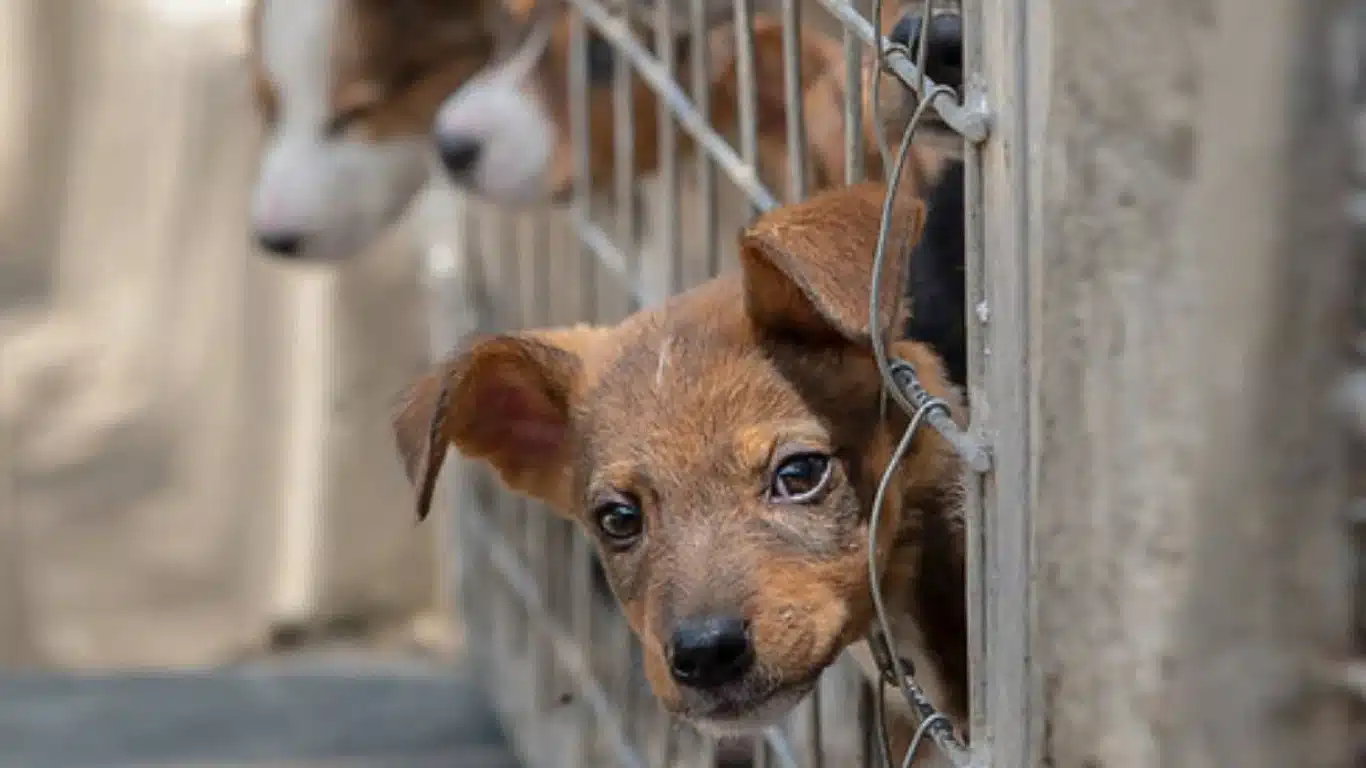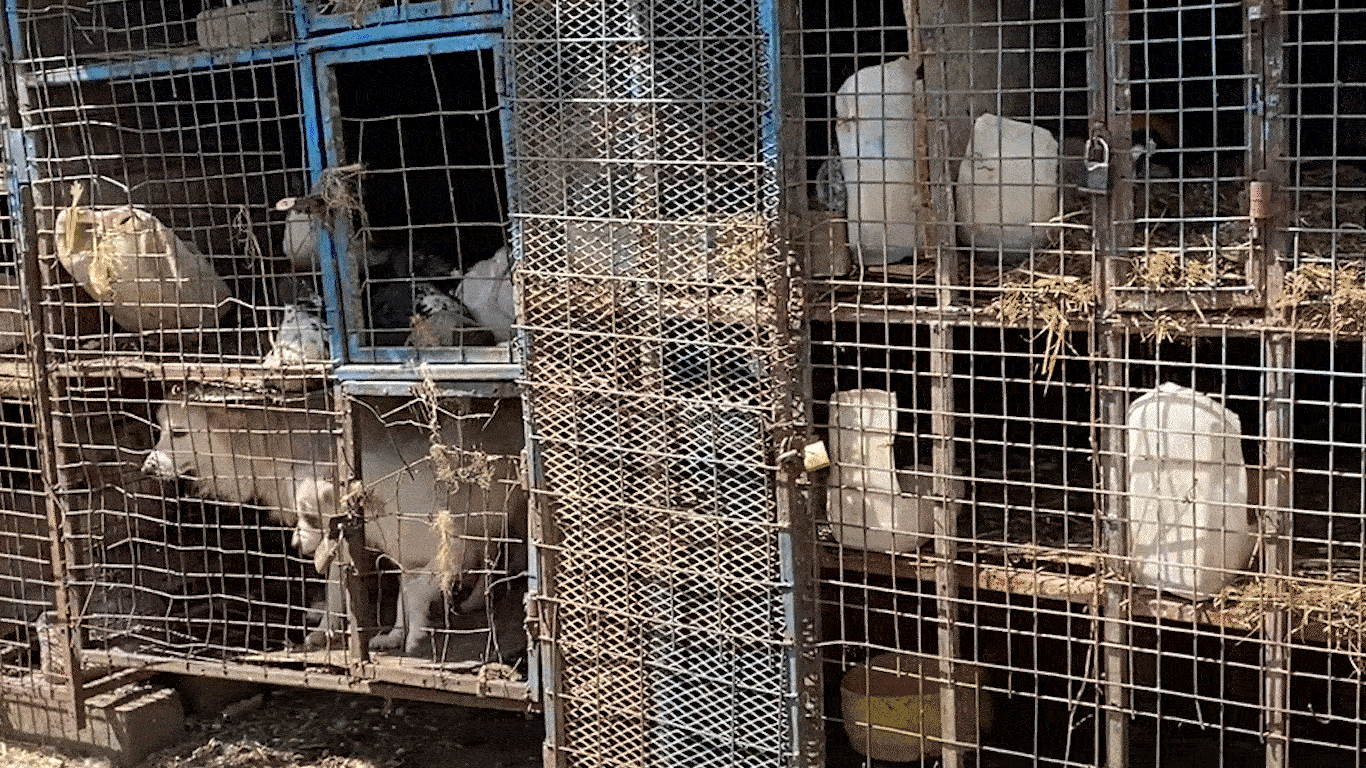Around the world, countless dogs and puppies are suffering in silence, victims of a cruel and growing crisis: Illegal puppy mills.
What are puppy mills?
Puppy mills are inhumane mass dog-breeding facilities that churn out puppies at a rapid rate for profit, ignoring the basic needs of the animals.
Mother dogs are treated as nothing more than money-making products, forced to breed repeatedly under appalling conditions. Their puppies, often malnourished and unvaccinated, are almost always sick due to the overcrowded and unsanitary environment they are born into.
Animals are kept in cramped, filthy cages, are starved and dehydrated, endure scorching heat and freezing nights, and are denied vaccinations and the most basic medical care.
This is not love for animals – this is exploitation for profit.
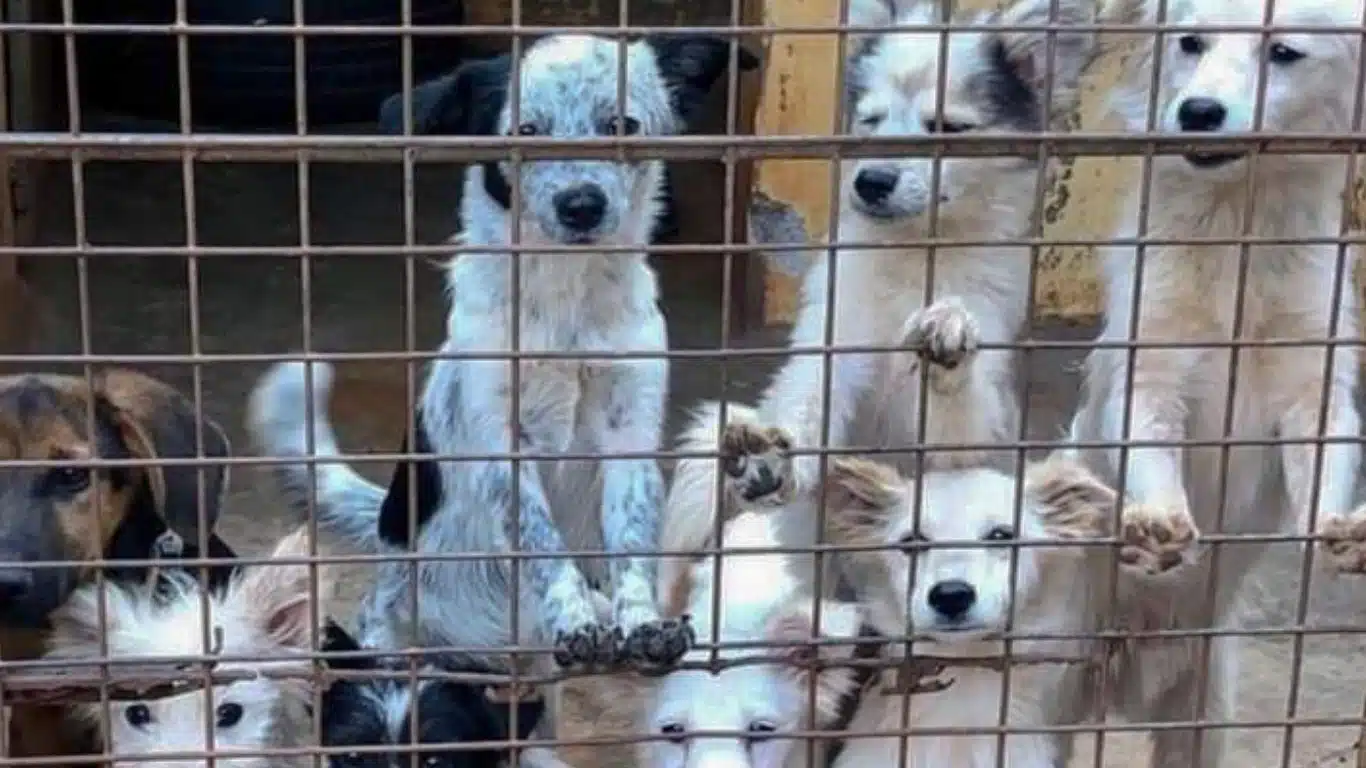
The puppy mill crisis in Kenya
In Kenya, puppy mills are a growing and largely underground animal welfare crisis. Driven by a rising demand for “fashionable” dog breeds and a lack of enforcement of animal protection laws, unscrupulous breeders are cashing in on cruelty.
- In roadside stalls and markets, puppies are beaten into submission.
- Pregnant dogs are starved and kept in cages so small, they can’t even move.
- Sick and unwanted animals are discarded like garbage.
Over the past decade, these illegal operations have exploded in size and severity, and without public awareness and legal accountability, this cruelty will only continue.
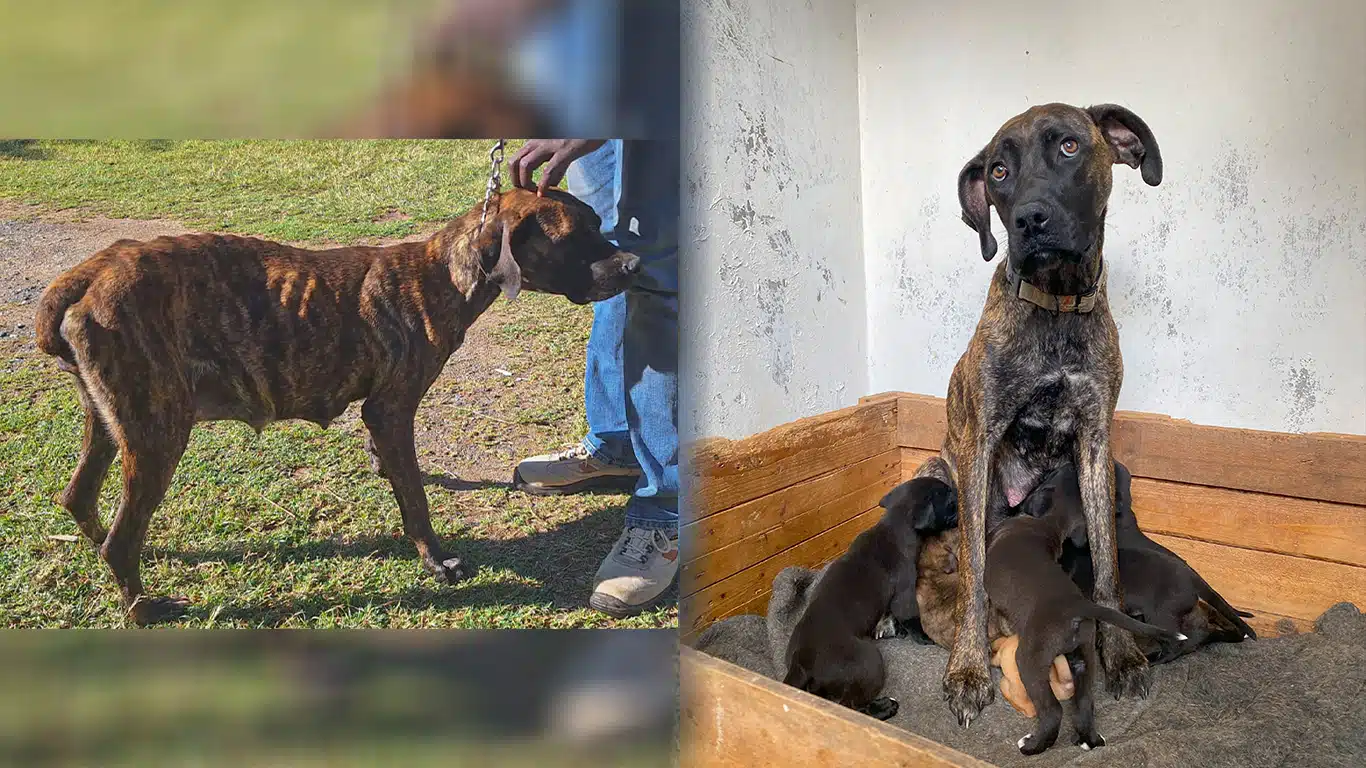
Asha’s story: Hope in the face of suffering
Since December 2024, our partner, the Kenya Society for the Protection and Care of Animals (KSPCA), has raided three illegal puppy mills and rescued 46 dogs and puppies. Among the rescued was Asha, a heavily pregnant, malnourished dog weighing just 42lb (19kg).
Despite her fragile condition, Asha gave birth to seven healthy puppies days after her rescue. Today, she and her little family are making a miraculous recovery in the safety of the KSPCA shelter.
But not all are as lucky. In the same set of raids, seven dogs died shortly after being rescued, as they were too weak and traumatized to survive. In one particularly shocking case, a dog was found crushed beneath another dog in a cage meant for one.
Why are there so many puppy mills, with more opening all the time?
- Lack of awareness: Many buyers unknowingly support this cruelty, unaware that their new puppies were bred in horrific conditions.
- High demand and illegal profit: Buyers are cashing in on illegally selling popular breeds like Japanese Spitz and Labradors at cut-rate prices.
- Weak enforcement: Kenya’s Prevention of Cruelty to Animals Act allows for the seizure of abused animals, but prosecutions are rare, and rescued dogs can remain in shelters for months before they can legally be put up for adoption due to court delays.
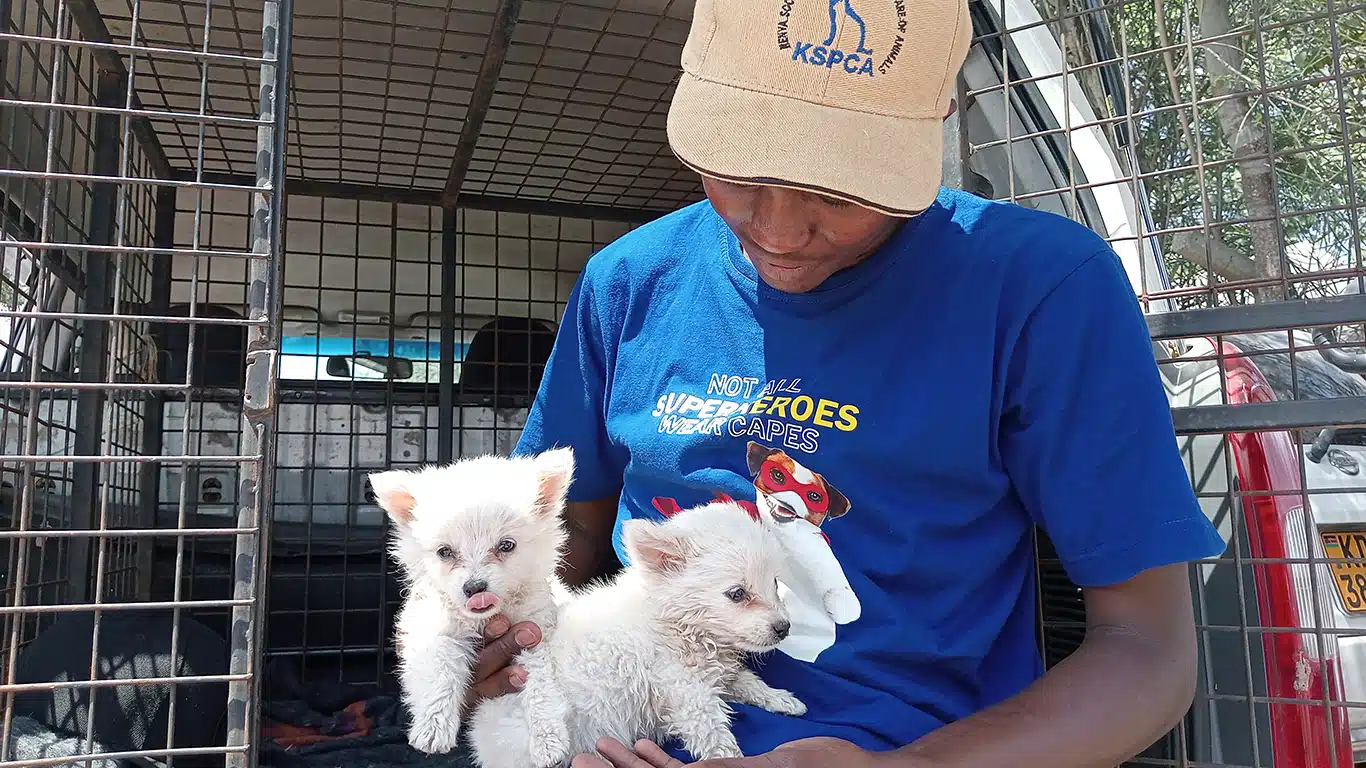
How we’re fighting for the animals
Network for Animals is proud to partner with the KSPCA, which is on the frontlines of the fight to shut down illegal puppy mills. Together, we:
- Conduct raids to save abused and traumatized animals from puppy mills
- Rescue and rehabilitate dogs in distress
- Work with the authorities to shut down illegal breeding facilities
- Provide food, shelter, vaccinations and medical care for rescued dogs
We are always on standby and ready to offer our support for critical rescue operations, costly legal fees and life-saving care for rescued animals whenever a new puppy mill is exposed.
How YOU can help
- Say NO to puppy mills: Never buy a dog from a market, roadside stall or breeder without verified credentials.
- Adopt, don’t shop: There are hundreds of healthy, loving dogs waiting to find their forever home in shelters across Kenya.
- Report cruelty: Use our confidential form to alert us and our global partners to suspected puppy mills and animal abuse.
- Sign up for updates and stay informed: Be the first to know when a new puppy mill is exposed and find out how you can help.
- Donate now: Your donations help fund emergency rescue missions, legal action, and life-saving medical care for dogs in need.
Every day, more dogs suffer in silence. But with your voice, your support and your action, we can bring them the justice, compassion and safe future they deserve.

